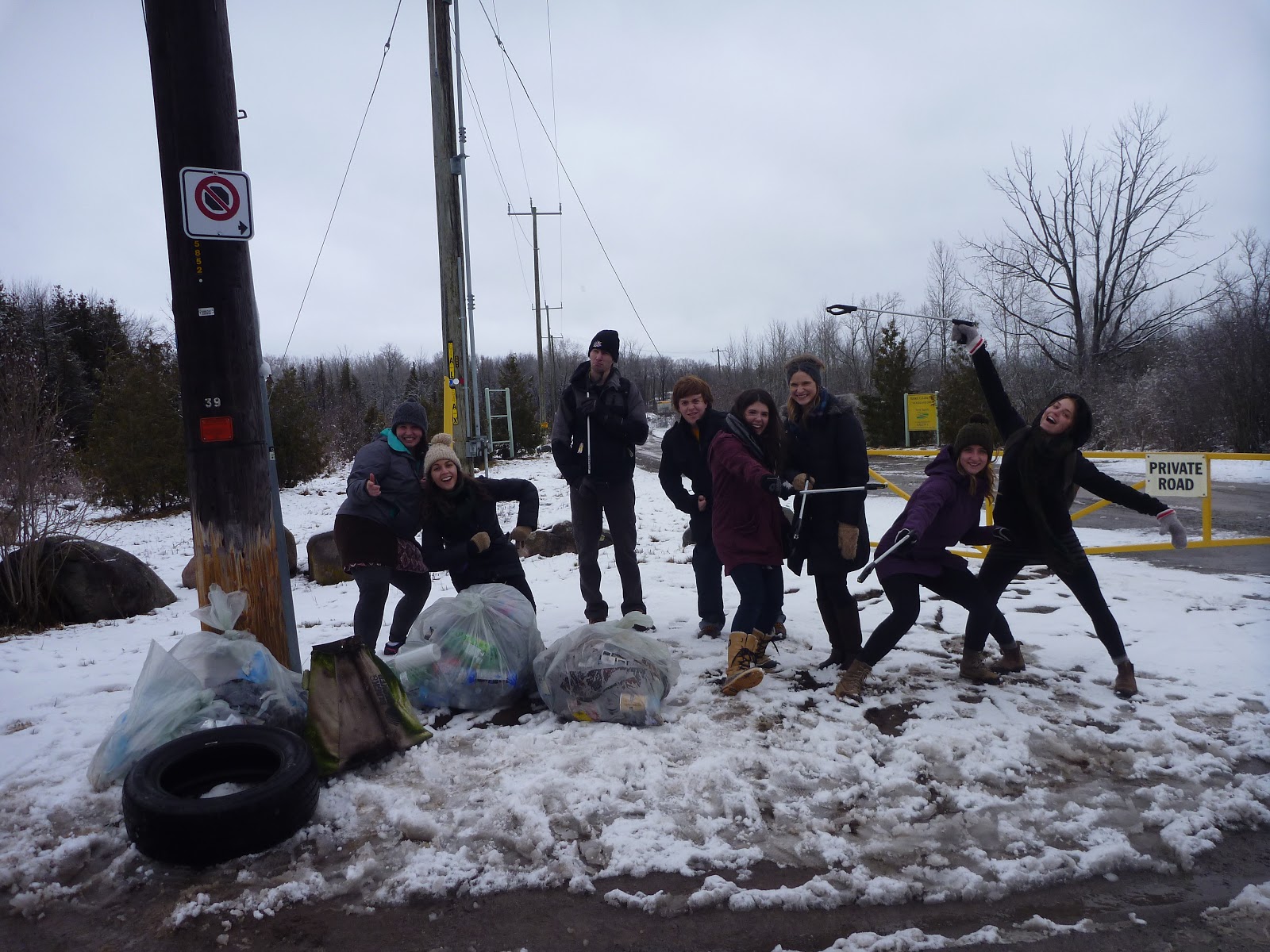
University students today understand the stress of being overworked, and overwhelmed. We may not realize it, but the features and quality of our surroundings can have a big impact on our well-being and how we cope with life’s challenges. Environmental psychology researchers study how people shape their environment and how the environment shapes us. This includes direct health effects (i.e., from air pollution), but also how the natural environment impacts mental health, including stress. Trent’s third year Environmental Psychology course introduces students to research on human-environment interactions.
This term, on March 3rd, Professor Lisa Nisbet’s students spent one of their classes learning about environmental education first-hand at Camp Kawartha’s Environment Centre, next to Trent’s Symons Campus in Peterborough. For three hours on a brisk March morning, Camp Kawartha’s Executive Director, Jacob Rodenburg, and Instructor Glen Caradus, captivated, entertained, and engaged students with examples of educational activities that illustrate the benefits of ecological sustainability. Students who practiced bird calls, ‘became’ layers of a tree, sang songs, fed chickadees out of their palms, and learned about the cutting-edge sustainable building design features of their temporary classroom. Students had the opportunity to observe and then try Indigenous skills and games, and a brave few were flung into the air by their classmates, during the Inuit blanket toss. From the moment students entered the building it was clear that living sustainably, to preserve the natural environment, is not only possible but enjoyable as well.
The goal of this field trip was to give students a break from the typical day of sitting, frantically writing or typing notes and, instead, spend time learning in a setting that encourages physical and mental well-being. Some students spoke about how their experience at Camp Kawartha actively engaged them in the course material – enhancing their understanding of it. Others expressed their joy in the teamwork activities – important skills needed for working together towards a healthy sustainable environment. Overall, many students agreed that Jacob and Glen’s indoor-outdoor “classroom” offered a new experience for them. Students left that day with a plethora of new information to help them further understand how they can become more involved with the natural world around them and some of the health and happiness that nature can offer.
Professor Nisbet’s course introduces students to the scientific research on how the built and natural world affect us, day to day. Experiencing nature, has a number of mental and physical health that can contribute to well-being. This could help students manage some of the end-of-term and exam-related stress at this time of year. Even brief exposure to the natural environment can help restore focus, boost our mood, and improve our vitality or energy. In Japan, Korea, and Finland, outdoor time is considered an essential health habit. Many researchers agree that exposure to nature can help reduce the “fight or flight” stress response, lowering blood pressure, heart rate, and improving immune functioning. In other words, some outdoor time can help us stay healthy during the end of term and exam period.
By learning how the environment affects us, students can find ways to reconnect with nature and maybe relieve some stress. Concrete walls don’t have the same effect on human psychology as tree trunks do. Some students remembered their childhood experience as a camper at Camp Kawartha and the happiness they experienced reliving the fun all over again – after all, we are all big kids at heart. Many students intend to return and explore the education centre further (and to feed the chickadees!). Some described it as the best experience they had at Trent University.
Nature is a part of us and we rely on healthy natural environments to survive and thrive. It seems the natural environment can influence human health as much as humans can impact the state of nature – highlighting the need to learn about the places that nurture our well-being and how best to protect them. The Environmental Psychology class run by Professor Nisbet begins to help students further unpack the meaning of this. Some students were inspired to organize a spring clean up and nature walk, making the campus healthier by picking up trash.
This class experience would not have been possible without the creative, invigorating teachings from Jacob and Glen. The class wishes to give Jacob, Glen and Lisa a huge thank you for making this happen. Camp Kawartha is a year-round environmental education facility with two locations in the Peterborough area. Their goal is to educate people of all ages on the importance of sustainable environmental behaviour, as well as ways in which people can become more involved within their environment. They can be reached via their website/email (http://campkawartha.ca/contact-us/) or by phone at: 705 652 3860, Monday to Friday (9-5).
